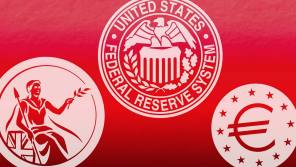
Article 3 / 4
Guide to investing in emerging marketsDoes emerging Europe offer long-term prospects?

This could be a misunderstanding about what constitutes emerging Europe or a lack of knowledge about the potential investment prospects in these countries.
Some of the countries which might fall into emerging Europe include Hungary, Romania, Poland and of course, Russia.
Investors are probably familiar with Russia as an emerging market, due to its inclusion in the BRICs grouping.
In the past, emerging Europe has fallen behind its emerging market peers, but Arrash Zafari a portfolio manager from Quaero Capital’s small and mid-cap investment team, believes this does not mean there are fewer opportunities for investors.
He explains: “The region stands out as having relatively immature capital markets, even compared to others within the EM universe.
“However, having lagged many EM peers for several years, until recently, there is still an appealing opportunity in terms of relative valuation, with the caveat that investors should be selective and willing to do their homework.”
For this reason, he suggests emerging Europe is not well suited to passive or index-based investment strategies.
According to FE Analytics, in the past three years to 28 August 2017, the MSCI Emerging Markets Europe index is up 17.3 per cent, some way behind the MSCI Emerging Markets index, which gained 37.3 per cent over the period.
The MSCI AC Europe index was also up an impressive 35.6 per cent over three years.
But in the past 12 months to 28 August, FE Analytics reveals the MSCI Emerging Markets Europe index is ahead, up 28.4 per cent, compared to the MSCI Emerging Markets index gain of 25.7 per cent and the MSCI AC Europe index which climbed just 20.8 per cent.
Weighing up the potential
Jan Dehn, head of research at Ashmore Group, notes: “Growth is picking up strongly in several eastern European countries. The economic upswing in the EU will support exports.”
But Mr Dehn believes the opportunities are greater in Latin America than in eastern Europe in general.
So does emerging Europe offer long-term investment prospects, for those investors prepared to ride out the ups and downs?
“Yes it does,” replies Mr Zafari, “especially for those investors who are truly long-term and also willing to look beyond the very largest and most liquid securities in the region.
“Actually, many of the biggest companies are government controlled and thus often have conflicting interests to those of minority investors (e.g. political considerations, rather than purely value creation), inhibiting their ability to offer superior long-term prospects.”
What is there to like in emerging market Europe?
According to Sergey Dergachev, lead portfolio manager, emerging market debt at Union Investment there are many reasons to like the region.
“The key reasons are lying in its strong economic fundamentals, a healthy growth picture of 3-4 per cent growth in Poland or Czech Republic, strong domestic demand especially in Poland, Turkey or Romania, and very low level of indebtedness,” he suggests.
“From a debt investor perspective, this market was historically dominated by banks, so debt from companies out of Poland, Hungary, Czech Republic or Turkey (ex-Turkish banks) offered good scarcity value, and performed well in secondary markets,” he adds.
But Mr Dergachev acknowledges the risks of investing in emerging Europe lie in its relationship with the core of the EU, where lots of import and export channels lie.
“The risk of a trade war between the US and EU, and event risk from Italy or stress at a European bank level, could cause a contagion effect to the region. But on a standalone basis, EM European countries (ex-Turkey and Russia) are very solid. We like Polish, Czech and Hungarian bonds and corporates,” he notes.
Tough economic backdrop
Rather like the BRICs acronym, Maarten-Jan Bakkum, senior emerging markets strategist at NN Investment Partners, does not think grouping the countries together is particularly helpful.
“Emerging Europe is heterogeneous. It does not make much sense to try having a view about the region as a whole.”
Instead, he suggests: “If we consider the different countries individually, we have a structural negative bias towards both Russia and Turkey and a more positive or neutral bias towards the central European markets. Currently, we have underweight positions in Poland and Turkey.”
Mr Zafari picks out Russia and Romania as appealing investment opportunities among emerging Europe, albeit for different reasons.
He explains: “The former has suffered from several years of negative headlines, tempering interest, especially relative to the size and importance of the market (and arguably country), even by emerging market standards.
“However, tough economic backdrops often provide opportunity for well run and prudently capitalised enterprises, who benefit from the reduced level of competition resulting from scarcer capital.
“Such companies tend to be domestically orientated and often small, relative to the large export orientated natural resource stocks that dominate the local equity market but actually have only limited direct exposure to the local economy.”
He emphasises this is why stock selection is so critical in Russia.
Early recovery stories
Turning to Romania, he highlights: “The country has witnessed a marked improvement in governance and economic performance, standing out as among the most progressive in Europe.
“This has been accompanied by an ongoing overhaul and revival of the local capital market, but this may still only be in its infancy, allowing investors increasing opportunities to profit from one of the fastest growing economies in Europe.”
Colin Croft, manager of the Jupiter Emerging European fund, agrees Russia is an interesting turnaround story, as well as Greece.
"It is often in the early phases of a recovery that the best opportunities can arise, as valuations are still cheap, yet earnings expectations are being revised upwards," he notes.
Emerging Europe is ripe for the picking but the investment opportunities arise when investors with a long-term time horizon take an active, stockpicking approach.
eleanor.duncan@ft.com



